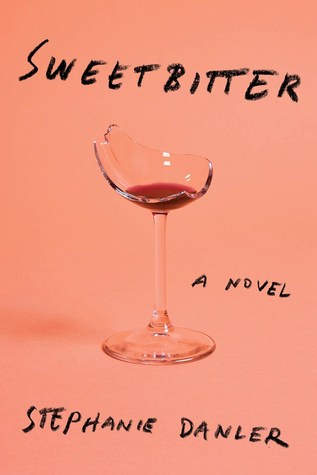Sweetbitter is the debut novel from Stephanie Danler, a semi-autobiographical account of her time as a waitress in New York. Carolyn Percy reviews.
‘Does anyone come to New York clean? I’m afraid not. But crossing the Hudson I thought of crossing Lethe, milky river of forgetting. Let’s say I was born in late June of 2006 when I came over the George Washington Bridge at seven a.m. with the sun circulating and dawning… windows unrolled, radio turned up to some impossibly hopeful pop song, open, open, open.’
Summer 2006, New York is a sweltering, stewing crucible of nervous energy and unfocused desire. Into this arrives our protagonist: twenty-two-year-old Tess, seeking escape from provincial mundanity, convinced her destiny must lie in the Big Apple. But like a lot of young people of the internet generation, she is at once worldly wise and yet green as new leaves. And even the greenest, shiniest looking apple can conceal a maggot or two.
Desperately in need of a job, she manages to land the coveted role of ‘backwaiter’ at a famous restaurant in Union Square, where we learn the secrets which lie behind the glamour and sophistication of a top restaurant: punishing, backbreaking work and more than a little cultural and intellectual posturing; an exclusive club of exhaustion, drink, drugs and, most importantly: food. As food ceases to be merely a commodity, Tess is pulled into the orbit of Simone: an older woman who occupies a mysterious place in the restaurant hierarchy. Under Simone’s tutelage, Tess’s knowledge grows and her palate expands. At the same time, she also falls hard for Jake: a smoldering young bartender. But Jake and Simone share a strange connection that will ultimately impart Tess’s most unpalatable lesson: that bitter often follows sweet.
Sweetbitter is the bestselling debut novel from Stephanie Danler. And if I were to describe it in one word, it would be: lush. All the senses are stimulated, indeed, almost to the point of sensory overload. Almost. The descriptions are sharp, colourful, often mouthwatering – indeed, if I was to be particularly cheeky, I could almost describe the style as ‘literary food porn’ – but never overtly flowery or stodgy. The frenetic energy of a busy workplace is brilliantly captured – one of my favourite elements of the book were the inserts between the different sections, collations of snippets of dialogue that read like found poems, an effect akin to overhearing several conversations at once – and this is maintained through the drinking, drug-taking and sex, building up to the inevitable come down, as that which is sweet rarely lasts forever.
There has also been a considerable amount of hype surrounding the story of the book’s publication: Danler, after receiving an MFA in Fiction from The New School, found a job as a back-waiter in a Union Square Café (her own experience undoubtedly informs the book, though Tess’s story doesn’t seem to be autobiographical) and the manuscript was picked up by a regular at the restaurant, who just happened to be an editor for a major publishing house. A six figure bidding war ensued before it was picked up, and so concluded Sweetbitter’s almost fairy tale path to publication. Sadly, some success stories attract conspiracy, and there were those who began to speculate that the publishing hype more to do with the author’s age and looks rather than the quality of the prose itself. This is a shame and unfair for two reasons: firstly, it says a lot about our attitudes to successful female writers, and secondly, it’s a red herring. Is Danler young & attractive? Yes. Does it matter? No. Does it have anything to do with the quality of the book? No. Is the book good? Yes, most definitely. Danler even casts an eye on this: it is generally assumed by her co-workers that Tess was hired because the interviewer was attracted to her, for example, and Tess herself realises that, subconsciously, she’s been going through her life counting on men being attracted to her.
The colourful cast of characters form a very dysfunctional family, where even the unlikable ones are still fun to spend time with – no mean feat. The conclusion is, as the title implies, bittersweet, but the aftertaste is anything but sour.
sweetbitter












